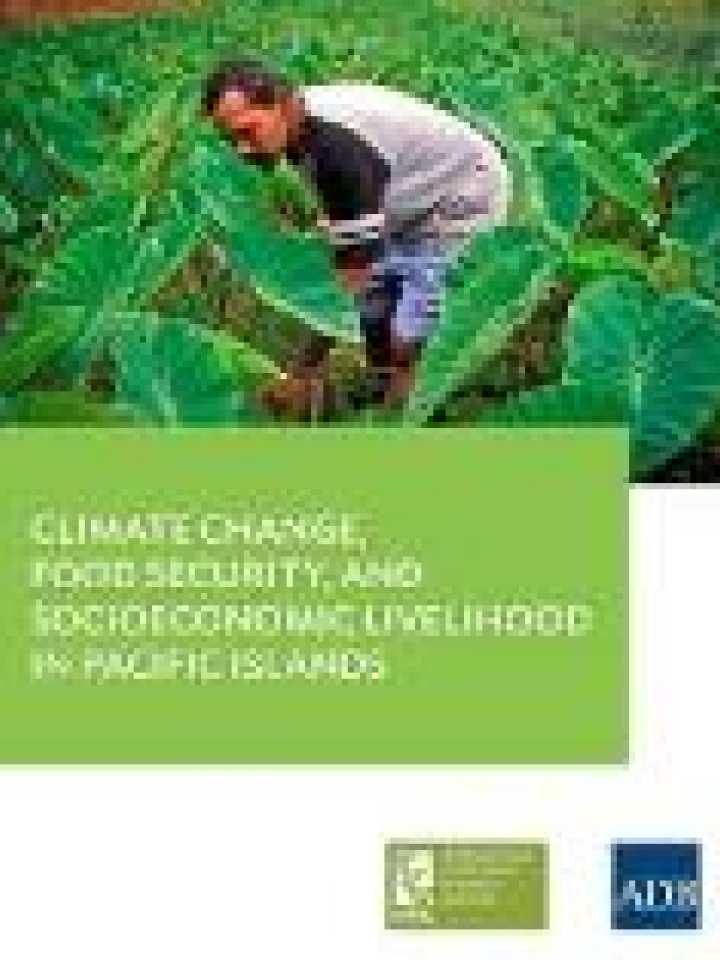Climate change, food security, and socioeconomic livelihood in Pacific islands
This study develops a framework for providing policy makers in Pacific island countries with the specific (quantitative and qualitative) information they need to formulate policies for counterbalancing—or at least minimizing—the negative impacts of climate change, specially on food security and economic livelihood.
Given the significant role in both employment and gross domestic product played by the agriculture sector in Fiji, Papua New Guinea, and Solomon Islands, adverse climate change-driven impacts are a particular concern. Beyond the negative impacts on crop yields and agricultural output, climate change will likely negatively impact incomes in the agriculture sector, food consumption levels, calorie availability, and the severity of child malnutrition in all three study countries.
The poor will no doubt be the most adversely affected by these changes, with an increase in the number of people at risk of hunger a likely outcome unless adaptation to climate change is undertaken. Maintaining “business-as-usual” in the agriculture sector would thus be a costly long-term policy response.
Findings of the report remark that investments in agriculture including improved crop management, more efficient use of fertilizer, and increased investment in agricultural research and extension services hold the potential to effectively eliminate the negative impacts of climate change on food security.
Explore further
